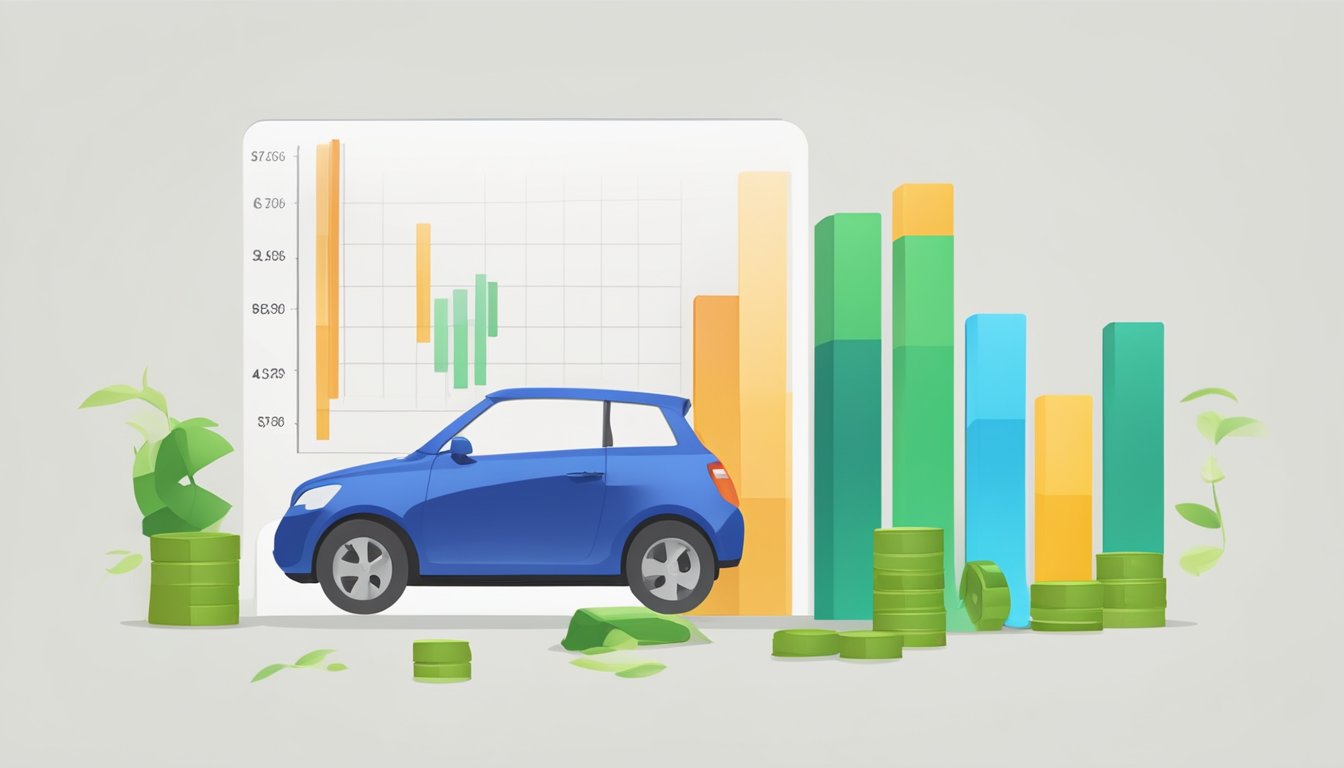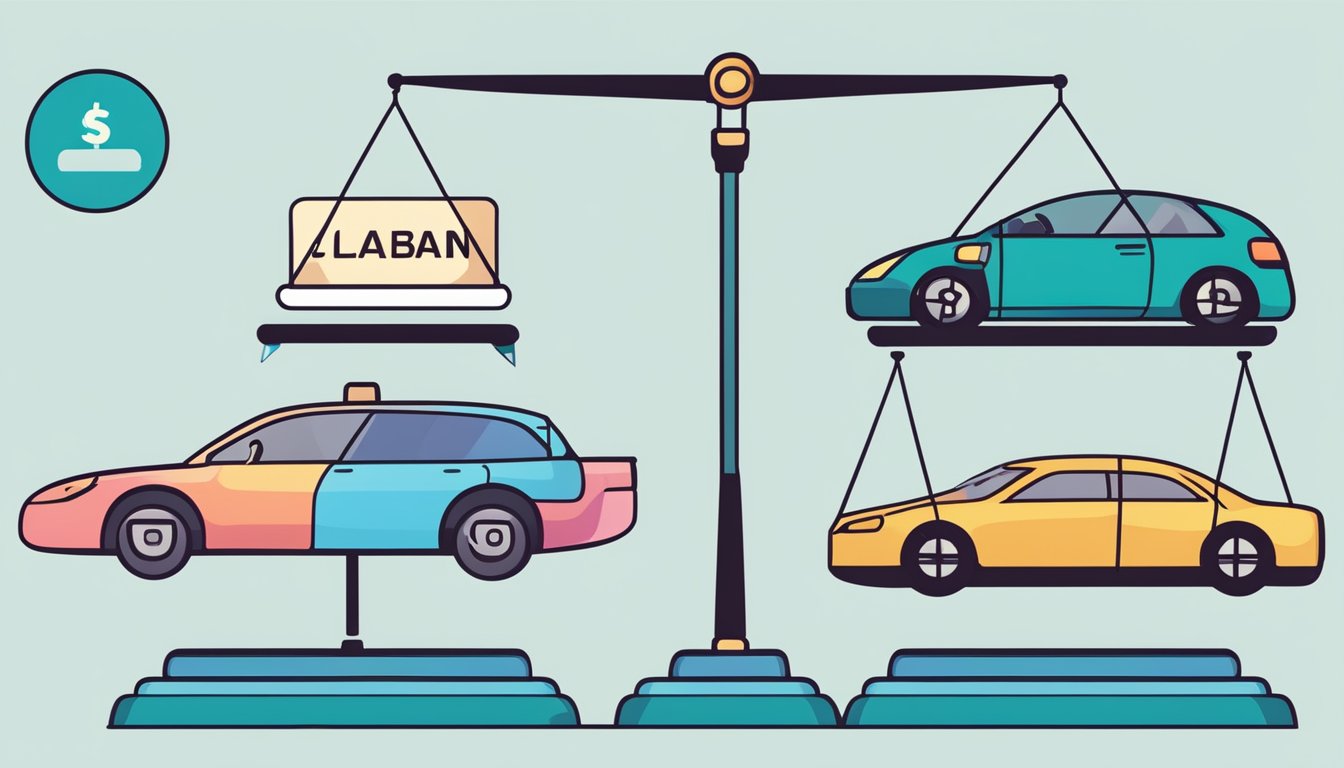
Introduction:
If you’re considering buying a car, you may be wondering whether to get a personal loan or a car loan. While both types of loans offer advantages and disadvantages, one of the most important factors to consider is the interest rate. Understanding the difference in interest rates between personal loans and car loans can help you make an informed decision about which type of loan is right for you.
Personal loans are unsecured loans that can be used for a variety of purposes, including buying a car. Since personal loans are not tied to a specific asset, like a car, they generally have higher interest rates than car loans. However, personal loans offer more flexibility in terms of loan amounts, repayment terms, and use of funds.
Car loans, on the other hand, are secured loans that are specifically designed for buying a car. Since the car serves as collateral for the loan, car loans generally have lower interest rates than personal loans. However, car loans offer less flexibility in terms of loan amounts and use of funds, and may require a down payment or trade-in to secure the loan.
Key Takeaways
- Personal loans generally have higher interest rates than car loans because they are unsecured.
- Car loans generally have lower interest rates than personal loans because they are secured by the car.
- When deciding between a personal loan and a car loan, consider your financial situation and how much flexibility you need in terms of loan amounts and repayment terms.
Understanding Personal Loans vs Car Loans

If you’re looking to purchase a vehicle, you have two options: a personal loan or a car loan. It’s essential to understand the key differences between these two types of loans to make an informed decision that suits your needs.
Key Differences Between Personal and Car Loans
Personal loans are typically unsecured, meaning that you don’t need to provide collateral to secure the loan. In contrast, car loans are secured loans, which means the vehicle you’re purchasing serves as collateral. This difference affects the interest rates, loan terms, and other factors.
Interest Rates and Loan Terms
Auto loans generally have lower interest rates than personal loans. Car loan terms are also typically longer, with repayment periods ranging from 36 to 72 months. Personal loans usually have shorter repayment terms, ranging from 12 to 60 months, and higher interest rates.
Impact of Credit Scores on Loans
Your credit score plays a significant role in determining the interest rate you’ll receive for both personal and car loans. A higher credit score generally results in lower interest rates, while a lower credit score can lead to higher interest rates.
Secured vs Unsecured Loans: Pros and Cons
Secured loans, such as car loans, offer lower interest rates, longer repayment terms, and higher loan amounts. However, they require collateral, which can be repossessed if you fail to make payments. Unsecured loans, such as personal loans, don’t require collateral, but they often have higher interest rates and lower loan amounts.
Choosing the Right Loan for Your Vehicle
When choosing between a personal loan and a car loan, consider your financial situation, credit score, and the type of vehicle you’re purchasing. If you’re buying a new car, a car loan may be a better option due to the lower interest rates and longer repayment terms. However, if you’re buying a used car or need to consolidate debt, a personal loan may be a better choice.
Additional Costs and Fees to Consider
When applying for a loan, consider the additional costs and fees, such as origination fees, documentation fees, and prepayment penalties. These fees can add up quickly and increase the overall cost of your loan.
Financial Planning and Loan Repayment
To ensure that you can afford your loan payments, create a budget and determine how much you can afford to pay each month. Use an auto loan calculator to estimate your monthly payments and total loan costs.
In summary, both personal loans and car loans have their pros and cons. Car loans offer lower interest rates and longer repayment terms, while personal loans offer more flexibility and higher loan amounts. Consider your financial situation, credit score, and the type of vehicle you’re purchasing to make an informed decision.
How to Navigate the Loan Application Process

Navigating the loan application process can be overwhelming, especially when you’re trying to decide between a personal loan and a car loan. However, with the right preparation, understanding of the approval criteria, and exploration of financing options, you can make an informed decision that suits your financial situation and goals.
Preparing Your Documentation
Before applying for a loan, you need to gather all the necessary documentation. This includes proof of income, employment, and residency. You’ll also need to provide your credit score and credit history, as well as any other debts or outstanding loans you have. Having all of this information ready in advance can help speed up the loan application process.
Understanding Loan Approval Criteria
Lenders use a variety of criteria to determine whether or not to approve a loan. This includes your credit score, credit history, and creditworthiness. They will also look at your income and debt-to-income ratio to determine how much you can afford to borrow. Understanding these approval criteria can help you better prepare for the loan application process.
Exploring Financing Options
When it comes to financing, there are several options available, including banks, credit unions, and online lenders. Each option has its own set of pros and cons, so it’s important to explore all of your options before making a decision. You should also consider any incentives or special financing offers that may be available.
Using Auto Loan Calculators
Auto loan calculators can help you estimate your monthly payments and determine how much you can afford to borrow. These calculators take into account factors such as the loan amount, loan term, annual percentage rate, and model year of the vehicle. By using an auto loan calculator, you can get a better idea of what your monthly payments will be and how much you can afford to spend on a vehicle.
Getting Preapproved for a Loan
Getting preapproved for a loan can help streamline the loan application process. Preapproval involves submitting your documentation to a lender, who will then review your financial information and determine how much you can afford to borrow. Once you’re preapproved, you can shop for a vehicle with confidence, knowing exactly how much you can afford to spend.
Tips for a Smooth Loan Application
To ensure a smooth loan application process, be sure to have all of your documentation ready in advance. You should also shop around for the best interest rates and loan terms, and consider working with a reputable lender. Additionally, be sure to read the fine print and understand all of the terms and conditions of the loan before signing on the dotted line.
In conclusion, navigating the loan application process can be daunting, but with the right preparation and understanding, you can make an informed decision that suits your financial situation and goals. By following the tips outlined above, you can streamline the process and get the financing you need to purchase the vehicle of your dreams.
Frequently Asked Questions

What factors contribute to the difference in interest rates between personal loans and car loans?
One of the main factors that contribute to the difference in interest rates between personal loans and car loans is the level of risk involved for the lender. Car loans are secured by the vehicle being purchased, which means that if the borrower defaults on the loan, the lender can repossess the vehicle and sell it to recoup their losses. Personal loans, on the other hand, are unsecured, which means that there is no collateral for the lender to fall back on if the borrower defaults. As a result, lenders view personal loans as riskier and charge higher interest rates to compensate for that risk.
How does one’s credit score affect the interest rate on a personal loan versus a car loan?
Your credit score is a critical factor in determining the interest rate you’ll be charged for both personal and car loans. Generally, the higher your credit score, the lower the interest rate you’ll be offered. This is because lenders view borrowers with higher credit scores as being less risky, and therefore more likely to repay their loans on time. So, if you have a good credit score, you’ll likely be able to secure a lower interest rate on both personal and car loans.
Can the term length of a loan impact the interest rates for personal and car loans?
Yes, the term length of a loan can impact the interest rates for both personal and car loans. Generally, loans with shorter terms come with lower interest rates than those with longer terms. This is because lenders view shorter-term loans as less risky since they are repaid in a shorter amount of time. So, if you can afford to make higher monthly payments, opting for a shorter-term loan could save you money in interest charges.
What are the benefits of choosing a car loan over a personal loan when purchasing a vehicle?
One of the main benefits of choosing a car loan over a personal loan when purchasing a vehicle is that car loans generally come with lower interest rates. This is because car loans are secured by the vehicle being purchased, which means that there is less risk for the lender. Additionally, car loans often come with longer repayment terms, which can make your monthly payments more affordable.
How do secured and unsecured loans compare in terms of interest rates for cars and personal use?
Secured loans, such as car loans, generally come with lower interest rates than unsecured loans, such as personal loans. This is because secured loans are backed by collateral, which reduces the risk for the lender. Unsecured loans, on the other hand, are not backed by collateral, which makes them riskier for lenders and therefore more expensive for borrowers.
In what situations might a personal loan be more advantageous than a car loan despite the interest rates?
There are several situations where a personal loan might be more advantageous than a car loan, despite the higher interest rates. For example, if you’re purchasing a used car or a car that is not eligible for financing, a personal loan may be your only option. Additionally, personal loans can be used for a variety of other purposes, such as home improvements or debt consolidation, which can help you save money in the long run.




